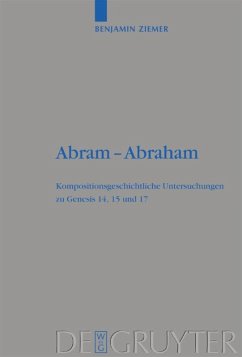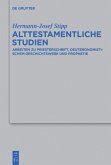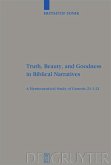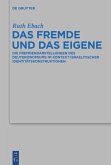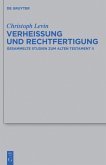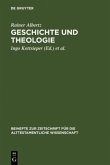This substantial contribution to Pentateuch research shows paradigmatically how the politico-geographical concepts from Genesis 14 and the concepts of the theology of promise in Gen 15 are taken up and specifically re-formed in Gen 17 and the final editorial layer. The hypothesis that Genesis is a basic priestly document is challenged, and instead, Genesis 17 is acknowledged as the keystone which was created specially for the final compositional systematisation of Genesis as an immediate prelude to the publication of the Torah (approx. 400 BC) and left a lasting mark on the Biblical image of Abraham.
Dieser wichtige Beitrag zur Pentateuchforschung zeigt paradigmatisch, wie aus Gen 14 die politisch-geographischen und aus Gen 15 die verheißungstheologischen Konzepte in Gen 17 und der Endkompositionsschicht aufgenommen und spezifisch umgeprägt werden. Die Hypothese einer Priestergrundschrift wird für die Genesis ad acta gelegt und Gen 17 stattdessen als Schluss-Stein gewürdigt, der eigens für die endkompositionelle Systematisierung der Genesis im unmittelbaren Vorfeld der Veröffentlichung der Tora (um 400 v.Chr.) geschaffen worden ist und das biblische Abrahambild nachhaltig bestimmt.
Dieser wichtige Beitrag zur Pentateuchforschung zeigt paradigmatisch, wie aus Gen 14 die politisch-geographischen und aus Gen 15 die verheißungstheologischen Konzepte in Gen 17 und der Endkompositionsschicht aufgenommen und spezifisch umgeprägt werden. Die Hypothese einer Priestergrundschrift wird für die Genesis ad acta gelegt und Gen 17 stattdessen als Schluss-Stein gewürdigt, der eigens für die endkompositionelle Systematisierung der Genesis im unmittelbaren Vorfeld der Veröffentlichung der Tora (um 400 v.Chr.) geschaffen worden ist und das biblische Abrahambild nachhaltig bestimmt.
"Eine interessante, eigenständige Studie, die Wichtiges zum alttestamentlichen Abrahamsbild beiträgt und darüber hinaus auch zu weiteren Untersuchungen und Diskussionen anregt."
Beate Ego in: Theologische Literaturzeitung 3/2007
"Es bleibt dem Autor und seinen (zukünftigen) Lesern zu wünschen, dass dieser für die endredaktionelle Komposition der Genesis wegweisenden Dissertation eine ebenso anregende weitere Studie folgen könnte. [...] eine komplexe, gut lesbare Monographie."
Harald Wahl in: Orientalistische Literaturzeitung 2/2006
"El libro merece mucha atención, pues está lleno de observaciones bien fundamentales."
C. Mielgo in: Estudio Agustiniano 3/2005
Beate Ego in: Theologische Literaturzeitung 3/2007
"Es bleibt dem Autor und seinen (zukünftigen) Lesern zu wünschen, dass dieser für die endredaktionelle Komposition der Genesis wegweisenden Dissertation eine ebenso anregende weitere Studie folgen könnte. [...] eine komplexe, gut lesbare Monographie."
Harald Wahl in: Orientalistische Literaturzeitung 2/2006
"El libro merece mucha atención, pues está lleno de observaciones bien fundamentales."
C. Mielgo in: Estudio Agustiniano 3/2005

